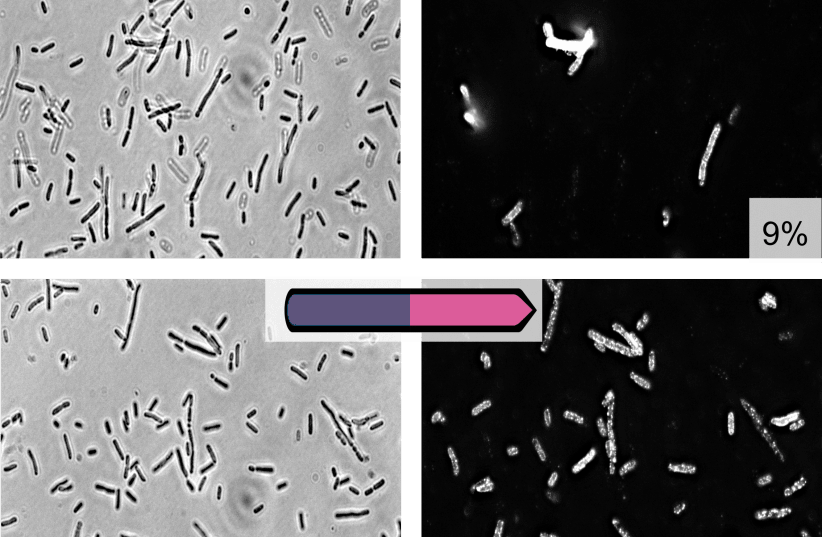Conducted by Technion researchers Naama Geva-Zatorsky and Nadav Ben-Assa and in collaboration with scientists from Harvard University, the study – the findings of which were published in the academic journal Nucleic Acids Research – detailed the numerous ways the gut is able to adapt to deal with constant changes.
Part of this is rooted in the microbiota – the various bacteria, viruses and other microscopic organisms that essentially colonize various parts of the body, of which the gut contains the largest and most diverse population. These microbiota are able to help coordinate the body's responses through a variety of means.
This is done through the process known as reversible genetic inversion, which sees parts of the body's genome sequence quite literally being inverted, through the use of the microbiota.
And the key to this success, the study said, was sugar.
“Among other things, we discovered changes in the sugars surrounding the bacterium,” Geva-Zatorsky said in a statement.
“These sugars serve as a kind of ‘identity card’ that helps the bacterium communicate with the environment. With these sugars, they also help our bodies, or more precisely, our immune system, to identify the type of bacterium present, and to respond to it. This is why we assume that changes in the gut alter that ‘identity card,’ which enables our cells to respond to the bacterium in different ways.”
This is not the first notable discovery to be made recently regarding the properties of the gut microbiome, and the pivotal role bacteria play.
In January, scientists from Bar-Ilan University found that boys exposed to antibiotics within the first 14 days since birth suffer from reduced weight and height for the first six years of life, with the researchers hypothesizing the gut microbiome's development being changed due to antibiotics.
